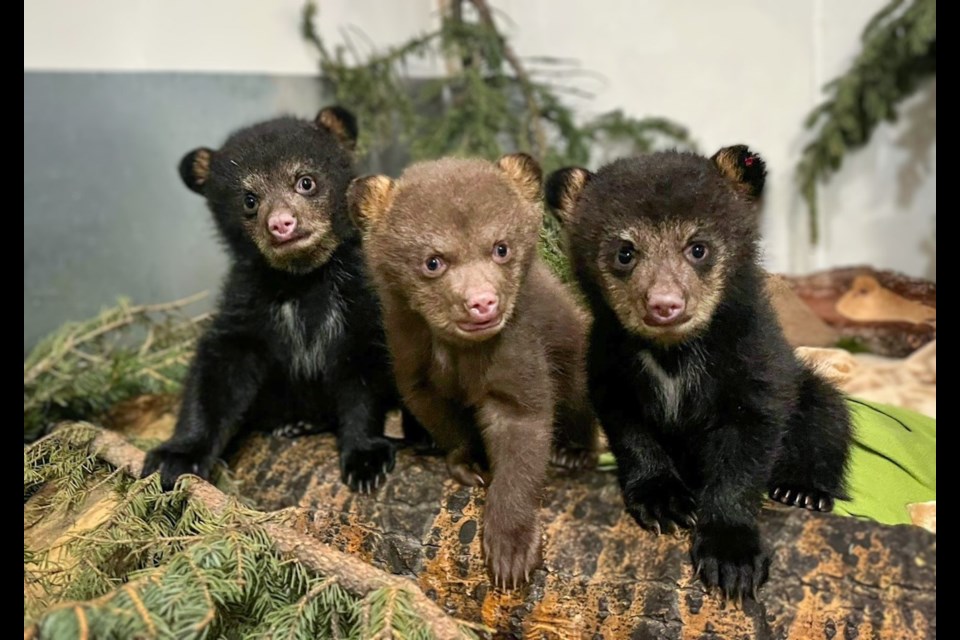Madden-based Alberta Institute for Wildlife Conservation (AWIC) is celebrating 30 years of service in 2023, and is hoping to raise $30,000 by May 31 to help with its spring and summer operations to continue saving and rehabilitating injured or orphaned wildlife.
“We are trying to raise $30,000 right now to care for all the wildlife that is going to come in over the spring and summer season,” said AIWC communications coordinator Rachel Swart. “We always see a huge increase in babies and injured wildlife over the summer with all the migratory species coming into Alberta. We usually get about 2,000 animals every year, and the large majority comes in during the summer.”
The spring fundraiser is called “Wildlife Baby Shower,” Swart noted, because many of the animals AIWC takes in are babies whose parents have been killed or who have abandoned their young for unknown reasons. As an example, Swart said AIWC currently has three black bear cubs under their care.
“They came into care because their den site was disturbed, and their mother left,” Swart explained. “After Alberta Fish and Wildlife waited for quite a while to see if she would return, she never did. The (cubs) were too young to survive on their own, and so they called us and we took them into care.”
Normally when AIWC takes in an abandoned wild animal or a wild animal with treatable injuries, it will work to rehabilitate them and return them back to the wild when it is safe to do so.
“They go through an intake examination, and then we try to feed them as close to a natural species diet as possible – and just keep them as wild as possible,” Swart said. “We don’t let visitors come like in a zoo. We run a hospital for them.
“We raise them until they are able to be released, and for injured animals, we rehab them.”
The cost to rehabilitate, feed and release these animals can range anywhere from $100 to over $1,000 depending on the species and the severity of their injuries, she confirmed.
But not all animals brought in are so lucky, explained Swart. Some have suffered such egregious injury that rehabilitation is impossible. These animals are either kept at the AIWC facility in Madden to see out their days, or humanely euthanized so they do not have to suffer any more.
Sadly, most of these severe injuries are caused by humans, according to Swart.
“All the animals we get in care come in from interactions with humans, either trapping, poisoning, hit by cars … It’s all due to human-related incidents,” Swart explained. “That is a big reason why we are here to help the wildlife – because of our impact on them.”
Because AIWC is a non-profit organization, those wishing to donate to the organization will receive a tax receipt.
But Swart is hoping potential donors also know the value of the work they are helping to pay for; if AIWC did not do what it does, then likely no one else could.
“Every little bit really helps out,” she stated. “A lot of the animals that come in are from vehicle strikes, barbed wire, domestic cat and dog attacks – things that are caused by humans. It is about helping the animals we have caused to be in care.”



